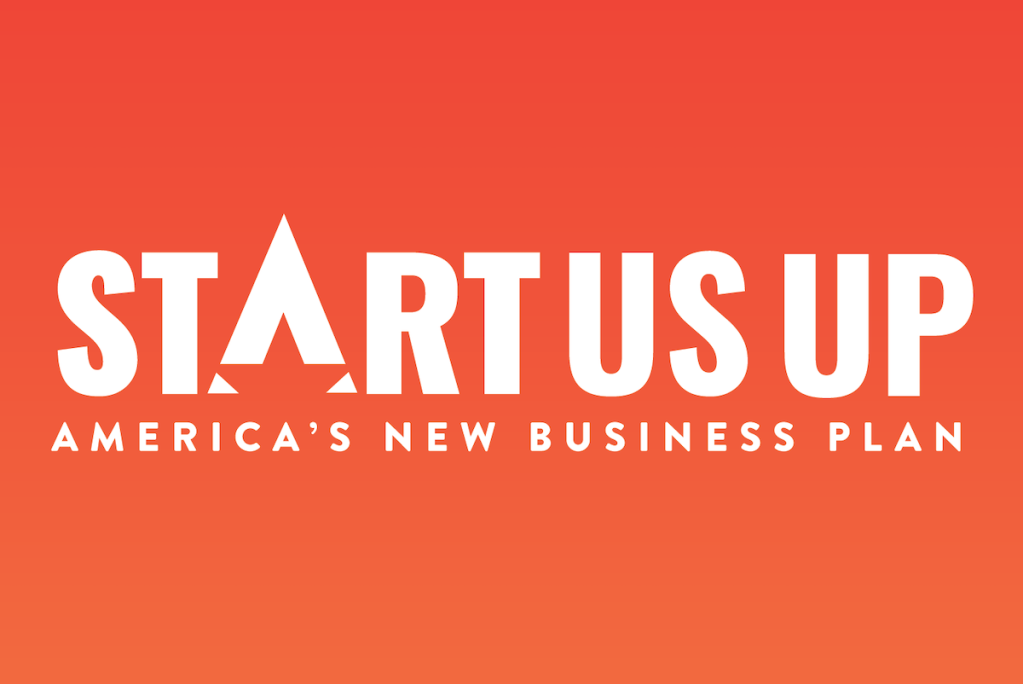As we approach the two-year anniversary of America’s New Business Plan, we’re inspired by the tireless work from across the Start Us Up coalition, which has helped yield action from policymakers beyond what was expected several years ago.
In the first iteration of ANBP, we wrote that “the subject of entrepreneurship … almost never enters the national conversation. In the 2016 election cycle, the nation’s entrepreneurs were rarely mentioned in media, debate, or platform coverage. There is a hole at the center of our economic discussion where hope should be.”
Two years later, entrepreneurship is squarely at that the heart of national conversation. And while we remain steadfast in our belief that policymakers can do more — turning their words of support into policy — the past month offers hope that many are recognizing the need to act.
Report on the 40th Small Business Forum
Prior to hosting the 40th Small Business Forum, the U.S. Securities and Exchange Commission (SEC) convened an advisory group including several members of the Start Us Up coalition. Representatives from the Center for American Entrepreneurship, Angel Capital Association, Conductor, Right to Start, RuralRISE, and National Venture Capital Association were among those who participated.
The report captures highlights from the forum, including quotes from roundtables and keynote speeches. Notably, SEC Commissioner Hester Peirce outlined policy recommendations discussed at the forum, reflecting many of the topics mentioned in ANBP, including expanding the definition of an ‘accredited investors’, crowdfunding, and more.
Occupational Licensing Stands in the Way of Recovery
Congress’ Joint Economic Committee released a new report, highlighting ongoing challenges, progress, and legislative updates tied to occupational licensing. The Institute for Justice, a leader in the space, has been closely involved in many of the items discussed in the report, which notes that “among the less discussed labor market frictions are inflexible occupational licensing regimes that exacerbate regional job-lock and keep sidelined workers from matching with understaffed employers.”
Among the signs of progress mentioned: Eighteen states and the District of Columbia already recognized out-of-state health care licenses during declared emergencies and in 2021, two new states introduced the uniform emergency legislation.
Resolution on Mayoral Policy Priorities to Advance Entrepreneurship
Recently, the U.S. Conference of Mayors convened for their 89th Annual Meeting, where they passed a resolution endorsing America’s New Business Plan. Recognizing that the “COVID-19 pandemic has both exposed the depth of racial, gender, and geographic inequities [in entrepreneurship] and exacerbated them,” the resolution commits to policies that “strengthen access to capital, eliminate barriers to opportunity, provide stronger networks, and create the safety net entrepreneurs need.”
The priorities include:
- Restricting the use of noncompetes through outright bans or by shortening the maximum duration of these contracts and narrowing the scope of industries and jobs for which noncompetes may be used.
- Improving transparency by requiring employers to disclose their intent to use a noncompete in job postings and offers.
- Replacing licensing with less onerous forms of regulation, such as certifications or permits, in industries where public health is not seriously threatened
- Reducing blanket bans and “good character” clauses in licensing requirements which erect barriers to entrepreneurship for the formerly incarcerated.
- Making substantial funding available to states for strengthening the private financing of new businesses by expanding capital access through patient capital, innovative investment models and technologies, financing guarantees, user-centered service design, community banking, and other means.
- Evaluating Opportunity Zones to understand the impact of this program to date and to identify reforms to ensure the program better serves new and small businesses, especially those owned by entrepreneurs of color.
- Establishing clear goals for all federal capital access programs, including the number of new entrepreneurs who access capital (disaggregated by race, gender, socioeconomic class, and geography), revenues generated, new jobs created and sustained, and customer experience feedback.
- Incentivizing financial innovation that addresses gaps in capital access by spurring the creation of a new generation of funding models and technologies that serve all types of new businesses, especially those currently underserved by the capital marketplace.
- Expanding the U.S. Treasury Department’s Community Development Financial Institution (CDFI) Fund to help CDFIs scale and lend to more new and small businesses in their communities, and encouraging the capitalization of local financial institutions by backstopping “equity-like” investment in CDFIs and Minority Deposit Institutions (MDIs) and strengthening investor tax credits.

